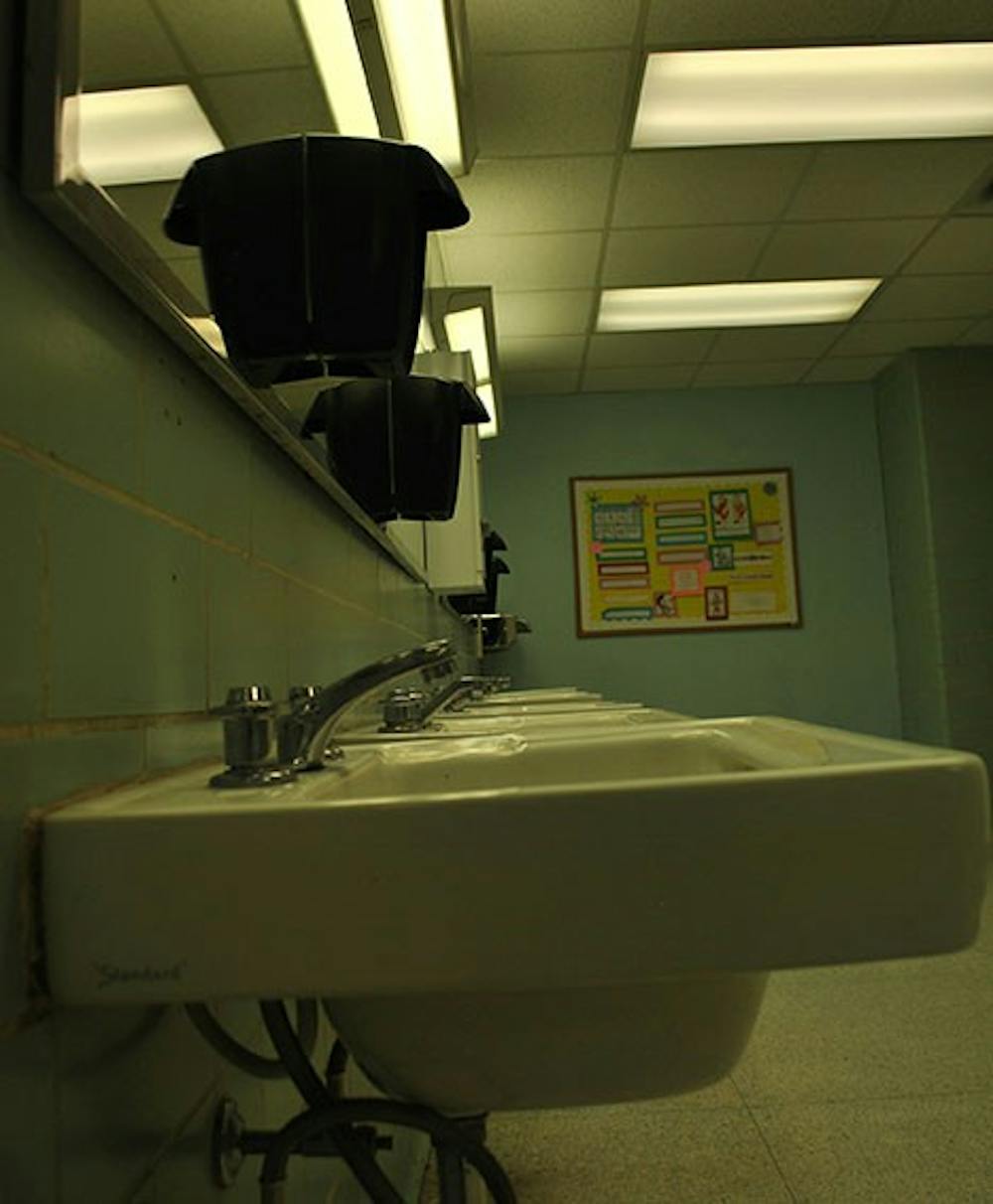One student’s research project might burst your bubble on the hand soap used at Otterbein.
Kristen Giesting, a senior environmental science major, recently discovered that the antibacterial soap available in Otterbein soap dispensers has a chemical called triclosan in it.
Jennifer Bennett, a professor in the Department of Biology and Earth Science, said, “There is growing evidence that (triclosan)
is harmful to human health and the environment. … Studies indicate that it is an endocrine disruptor, interfering with normal hormone signaling within the body.” Bennett said triclosan might be carcinogenic, or a possible cause of cancer.
Giesting said the chemical is in many household products. “It’s a man-made anti-microbial. … It’s crazy that it’s even in soaps at all because studies have shown that normal soap (without triclosan) is just as effective at killing germs,” she said. “I just read an article stating that it can be found in 75 percent of Americans.”
Giesting became interested in triclosan while doing her senior research thesis on the chemical’s presence in Alum Creek. She said the amount of triclosan in Alum Creek has been slowly rising, possibly due to the soap being used at Otterbein.
The Food and Drug Administration website said the organization has requested that the chemical be used in fewer consumer products, as it has caused hormonal regulation issues within animals.
The FDA is investigating the chemical and plans to release its findings this winter.
Giesting and Bennett said they met with Frank Rydzweski, the special projects manager at Otterbein, who said he would look into the use of the chemical in the soap.
Freshman sociology major Jess Moore said she thinks something should be done about the soap. “I am going to petition to stop using this soap.”








